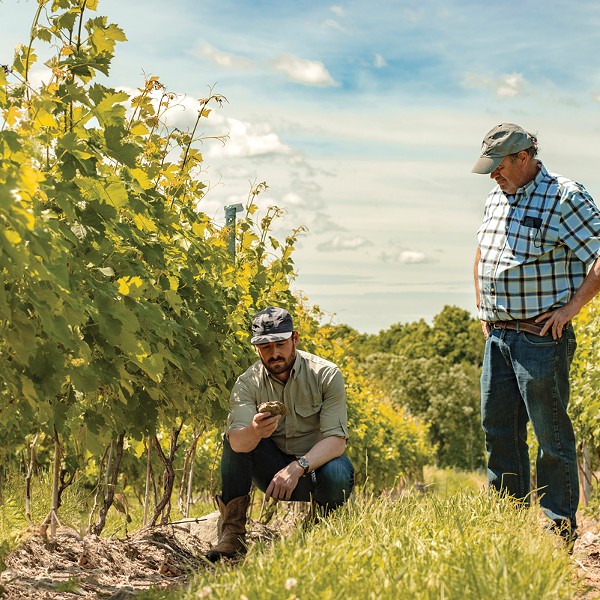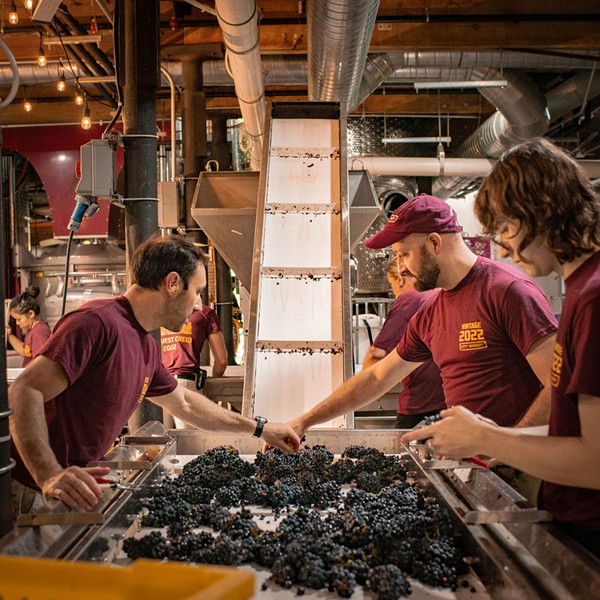Gerard Viverito, professor at the Culinary Institute of America and cofounder of the sustainable seafood advocacy group PassionFish (profiled in February), has started a business. The Hudson Valley Fishmonger sells only sustainably caught seafood sourced directly from the people who caught it. Viverito refers to it as a CSA, for “Community Supported Aquatics” and explains that it offers customers a chance to buy properly harvested fish as fresh as it can be. Most of what he offers is delivered within 24 hours of landing. Due to the nature of the supply chain, fish markets generally carry seafood that is at least a few days older than that, and the difference in quality is astonishing. Currently, Viverito is taking orders via phone or e-mail and making weekly deliveries in Woodstock and Red Hook, but in the spring he plans to have tables at both the Woodstock and Rhinebeck farmers’ markets.
Don Lewis at Wild Hive Farm (April) is in the process of moving to his new grinding facility down the road from his café and store in Clinton Corners. His new 30-inch mill has arrived—a big step up from the 20-inch he’s been using—and he expects to be grinding with it beginning this month. A dehuller and other machines are scheduled for installation in the spring, and Lewis looks forward to doubling his production once all the equipment is up and running. In anticipation of the increased supply, Lewis has been working on a new model for structuring demand along CSA lines. Customers can buy shares, different denominations of which will entitle the buyer to a certain amount of grain and flour over the course of the year. There’s no minimum buy-in, and the plan includes gift cards, so it allows for more flexibility than a traditional CSA. Lewis urges people to participate. “Food security begins with the farmers,” he says. “If customers pre-order, I can tell them to plant more acres of grain.”
The Amazing Real Live Food Company (July) has encountered some setbacks, but Rory Chase and Peter Destler are on the verge of having their new facility fully operational. Problems with the boiler that heats the milk tank (the unit originally installed was not powerful enough to heat the full tank, so it had to be swapped out for a bigger one) helped contribute to the delay, but it also heightened their desire to hit the ground running. They’ll be using milk from Chase’s family farm to make much more of their current line, and also to branch out; they have plans to make cheddar, as well as fresh mozzarella (and its divine cousin, burrata, which is mozzarella encasing a near-liquid mixture of cheese and cream). In keeping with their name, they’ll also be offering kombucha (fermented tea) and dramatically increasing their production of probiotic ice cream—which Destler guesses is likely the only such ice cream available.
On the permaculture front, both Lee Reich and Ethan Roland (August) are offering a variety of courses to those seeking a deeper understanding of gardening and home food production. Starting in April, Reich will begin holding workshops on fruit and vegetable gardening, pruning, and landscaping with edible plants at his home in New Paltz. Reich also holds an annual plant sale in May, offering a selection of fruit varieties chosen for their yield, flavor, and ease of cultivation. Roland has a full schedule of classes and events beginning this month, with both introductions to and immersion courses in edible forest gardening and a permaculture design certificate course. Details can be found on their websites; see the end of this piece for a complete list of resources.
On the heels of last month’s piece on local distillers, comes more exciting news. Stephen Osborn of Stoutridge Vineyard in Marlboro is gearing up to begin a large-scale distillery alongside his winemaking operations. His solar-powered facility will produce a wide range of spirits made and flavored with entirely local ingredients: vodkas flavored with fruit from specific trees on various nearby farms, gin made with local botanicals, grappas and eaux de vie from grapes and other fruit. Bourbon and rye will follow, after some time aging in oak barrels, and he expects to be fully operational by September. Osborn says that having a distillery in the winery makes a lot of sense in this climate: “We can’t afford to have down vintages; we have to utilize the harvest every year. A bad wine year is excellent for brandies.” He plans to offer customers their own 7.5-gallon barrel of whiskey, made to order—three and a half cases of bespoke booze, with the barrel it was aged in. These CSA-style pre-orders will help Osborn secure contracts with farmers that benefit both parties.
















